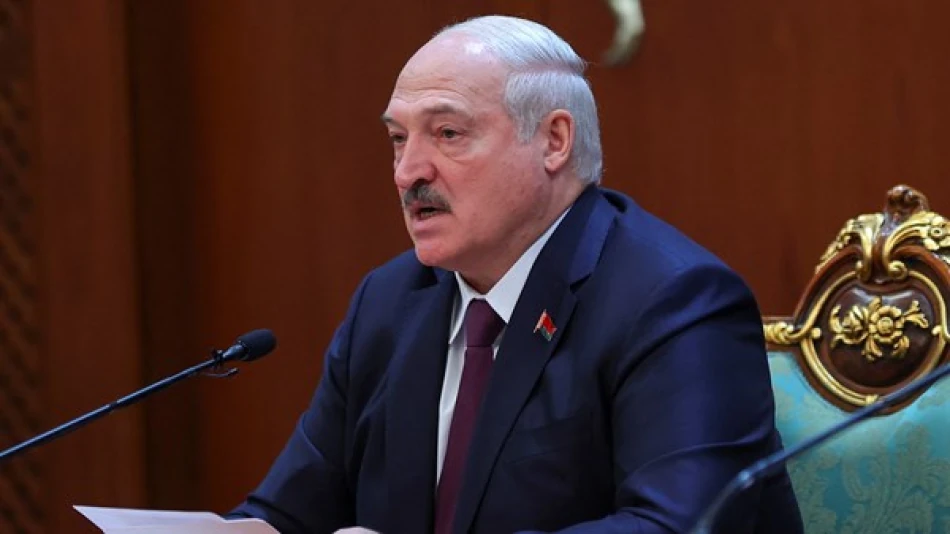
Trump Contacts Belarusian Leader Ahead of Putin Summit: Diplomatic Maneuvering Unfolds
Trump's Pre-Alaska Summit Call with Lukashenko Signals Strategic Prisoner Diplomacy
President Donald Trump engaged in a carefully timed phone conversation with Belarusian leader Alexander Lukashenko on Friday, just hours before his scheduled Alaska summit with Russian President Vladimir Putin. The call, which focused on prisoner releases and regional dynamics, suggests Trump is leveraging human rights issues as diplomatic currency ahead of his high-stakes meeting with Putin.
Prisoner Releases as Diplomatic Leverage
Trump revealed on his Truth Social platform that he thanked Lukashenko for releasing political prisoners and indicated discussions are underway for the freedom of an additional 1,300 detainees. This development represents a significant shift in Belarus-US relations, particularly given Lukashenko's historically close ties to Moscow and his regime's crackdown on opposition figures following the disputed 2020 elections.
The timing appears deliberate. By securing concessions from Putin's key ally before the Alaska summit, Trump positions himself with tangible diplomatic achievements that could strengthen his negotiating stance with the Russian leader.
Strategic Implications for the Putin Meeting
Weakening Moscow's Regional Influence
Trump's engagement with Lukashenko sends a clear message to Putin: even Belarus, Russia's most reliable ally in the post-Soviet space, is open to dialogue with Washington. This could complicate Putin's regional strategy, which has long relied on Belarus as a buffer state and military staging ground.
Human Rights as Foreign Policy Tool
The prisoner release discussions echo successful diplomatic strategies used by previous administrations, where humanitarian gestures created openings for broader negotiations. Trump's approach mirrors tactics employed during Cold War prisoner exchanges, though adapted for the current geopolitical landscape.
Market and Geopolitical Context
Belarus remains strategically vital due to its position between Russia and NATO members Poland and Lithuania. Any shift in Minsk's alignment could impact regional energy markets, particularly given Belarus's role in Russian oil and gas transit routes to Europe.
For investors monitoring Eastern European markets, improved US-Belarus relations could signal potential sanctions relief, opening opportunities in sectors like agriculture and manufacturing where Belarus maintains competitive advantages.
Comparing Regional Diplomatic Patterns
This diplomatic outreach follows patterns seen in other contested regions. Similar to US engagement with Gulf states before major Middle East initiatives, or preliminary talks with North Korean allies before summit diplomacy, Trump appears to be building leverage through peripheral relationships.
The strategy differs markedly from the Biden administration's approach, which typically coordinated with European allies before engaging authoritarian leaders. Trump's direct bilateral engagement suggests a return to his preference for personal diplomacy over multilateral frameworks.
What This Means for the Alaska Summit
The Lukashenko call transforms the dynamics of the upcoming Putin meeting. Rather than approaching as a supplicant seeking dialogue, Trump enters with evidence of his ability to influence Russia's closest ally. This psychological advantage could prove crucial in discussions likely to cover Ukraine, sanctions, and broader US-Russia relations.
The prisoner diplomacy also provides Trump with a humanitarian success story that counters criticism of engaging with authoritarian leaders, framing the outreach as producing concrete human rights improvements rather than mere political theater.
Most Viewed News

 Layla Al Mansoori
Layla Al Mansoori






